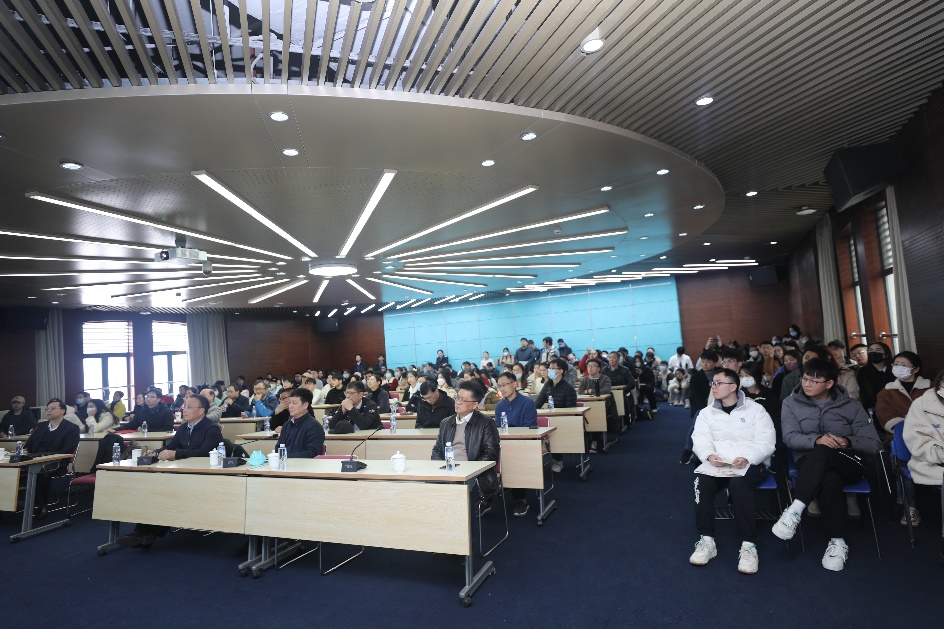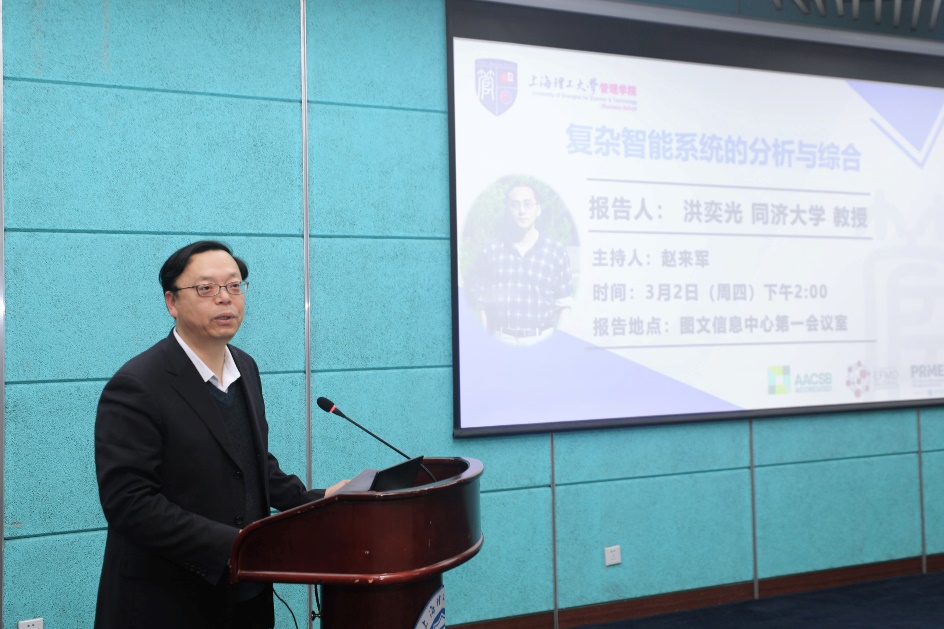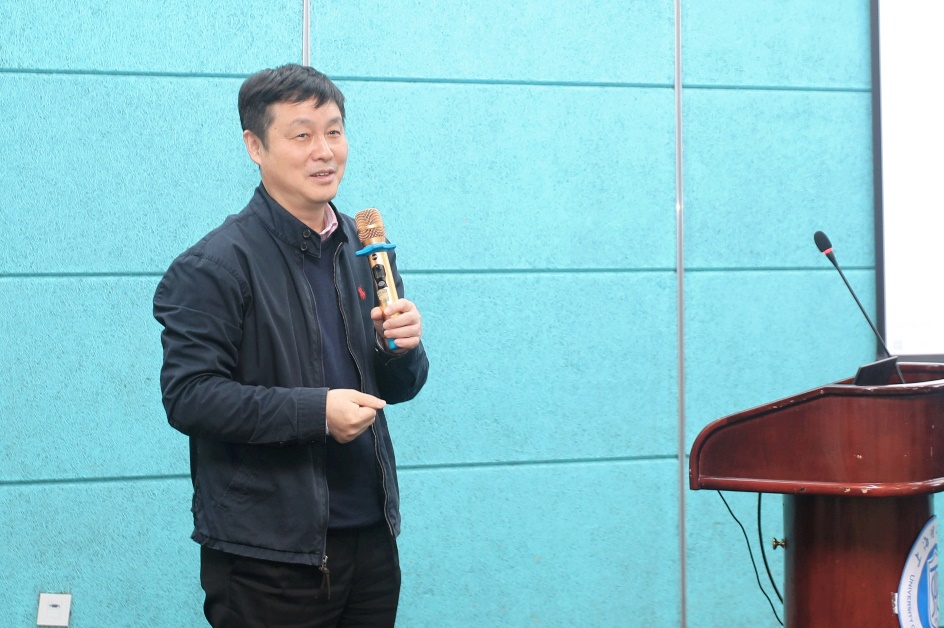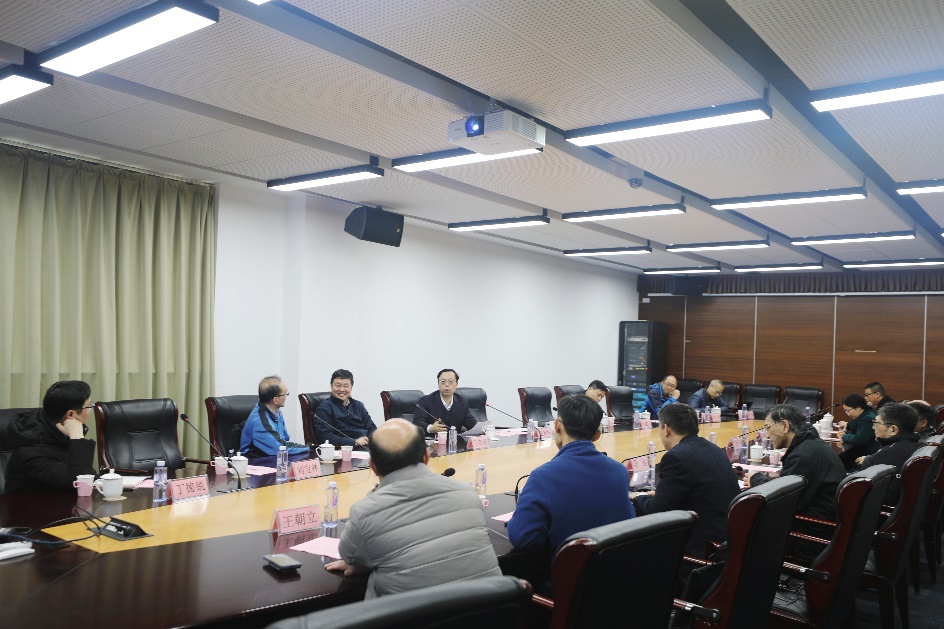On March 2nd, Professor Hong Yiguang of Tongji University visited our university for exchange and gave a lecture entitled Analysis and Synthesis of Complex Intelligent Systems. President Ding Xiaodong and Deputy Secretary of the University Party Committee Gu Chunhua attended the lecture. More than 300 teachers and students from the university participated in this seminar. The seminar was chaired by Zhao Laijun, dean of the Business School.

Seminar site

Zhao laijun chaired the seminar
During the presentation, Hong Yiguang introduced his team's theoretical achievements in perception, evolution, learning, decision-making, and control, as well as their application achievements in unmanned systems, smart grids, biomedicine, quantum networks, and social networks, from three aspects: nonlinearity, randomness, and multi-intelligent agent. He encouraged everyone to pay attention to a multi-disciplinary intersection in scientific research, explore and raise questions, build a research system, establish lofty ideals. He had an in-depth interactive exchanges with participating teachers and students on issues related to research in complexity.

Presentation by Hong Yiguang
In the summary speech, Ding Xiaodong expressed gratitude to Hong Yiguang for his inspiring lecture to our university's teachers and students. Ding Xiaodong pointed out that Hong Yiguang and his team's research achievements have a high impact on the academic community, and there are many similarities between their research directions and those of our university's relevant disciplines. Ding Xiaodong sincerely invited Hong Yiguang to conduct in-depth scientific research cooperation with our university.

Summary speech by Ding Xiaodong
After the seminar, Ding Xiaodong and Hong Yiguang conducted in-depth exchanges on issues related to scientific research cooperation. The deans of relevant schools and heads of relevant disciplines also jointly discussed the direction and methods of scientific research cooperation between the two sides.

Exchange discussions
Hong Yiguang received his bachelor's and master's degrees from the Department of Mechanics at Peking University, and his doctoral degree from the Institute of Systems Science, Chinese Academy of Sciences. Subsequently, he worked at the Institute of Systems Science, Chinese Academy of Sciences. Currently, he is the Deputy Director of the Shanghai Autonomous Intelligent Unmanned Systems Science Center at Tongji University, and a part-time researcher at the Academy of Mathematics and Systems Science of the Chinese Academy of Sciences. He has served as a researcher at the Academy of Mathematics and Systems Science of the Chinese Academy of Sciences, director of the Key Laboratory for System Control of the Chinese Academy of Sciences, and director of the Information Intersection Department of the National Center for Mathematics and Interdisciplinary Sciences of the Chinese Academy of Sciences. He is also a member of the IEEE Fellow, the Artificial Intelligence Society, and the Automation Society. For many years, he has been engaged in research on nonlinear control, multi-intelligent agent control, distributed optimization and gaming, social networks, software reliability, robotics, and other aspects. Currently, he is a member of the System Science Review Group of the State Council, executive director of the China Society of Systems Engineering, and director of the Control Theory Special Committee of the Automation Society. He has successively served as a member of the IEEE Control Systems Society, chairman of the Public Information Committee, chairman of the Branch Activities Committee, and member of the Board of Governors and SIAM CST Best Paper Award Committee. Currently, he is the editor-in-chief of Control Theory and Technology. He is also (once) an Associate Editor for internationally renowned journals such as IEEE Transactions Automatic Control, IEEE Control Systems Magazine, IEEE Transactions Control of Network Systems, Nonlinear Analysis: Hybrid Systems, and others. He has won the Guan Zhaozhi Best Paper Award at the China Control Conference (1997), the Young Author Award at the International Federation of Automatic Control (IFAC) World Congress (1999), the United States National Research Council (NRC) Joint Research Award Fund (2000), the Young Scientist Award of the Chinese Academy of Sciences (2001), the National Fund for Distinguished Young Scholars (2004), the China Youth Science and Technology Award (2006), the Distinguished Young Scholars Award of the Chinese Academy of Sciences (2007) Second Prize of National Natural Science Award (2008), etc.


